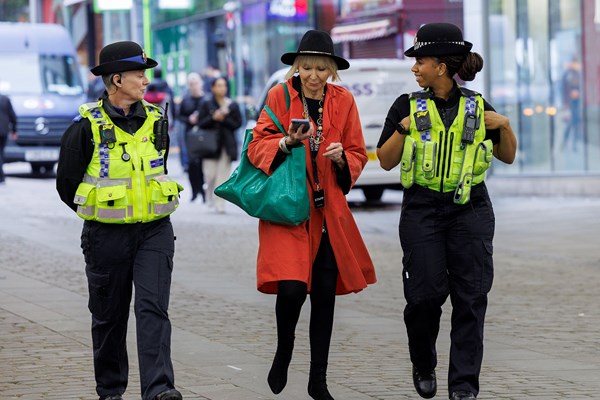
Additional support for community sports clubs to prevent violence among young people
- Sport helps young people overcome negative influences that may lead to violent behaviour, conference hears
- Clubs offered help with training and bidding for funds from Violence Reduction Unit
- Leaders pledge to do more to prevent anti-social behaviour and violence
Community sports organisations are being urged to take advantage of new support to expand their work to prevent young people becoming involved in violence.
Greater Manchester leaders want to use help available through the city region’s Violence Reduction Unit to support local sports clubs, groups and societies to do more to stop young people getting drawn into violence.
They are today (Friday 5 March) hosting an online conference bringing community sports organisations together with Greater Manchester Combined Authority, Greater Manchester Police, Greater Sport and local councils.
The event is being hosted by community sports development organisation StreetGames, which has been commissioned by Greater Manchester Violence Reduction Unit to advise, support and train local clubs.
This will help local clubs be more targeted in their approach, to bid for funding to expand their work and to ensure they use approaches that are proven to work in turning around young people’s behaviour.
Those attending include football, rugby, cricket clubs and boxing clubs from across Greater Manchester.
The support given to community sports organisations will be targeted at the neighbourhoods and groups of young people most at risk of being drawn into violence, either as a victim or a perpetrator.
The conference will hear that community sports can achieve success in preventing young people from taking part in anti-social behaviour and potentially spiralling into violence.
It does by building on young people’s strengths and potential, creating positive relationships, goals to aspire to and by providing rewards for achievement.
In this way young people develop their skills, improve their health and develop the self-confidence to work toward training, a job and positive relationships.
These positive aspects of sport can help young people overcome negative influences that may lead them toward violent behaviour, such as their family or neighbourhood background, or difficult experiences in childhood.
The online event, due to be attended by around 150 people, follows a conference held two years ago to develop a vision for community sport in violence prevention.
Since then Greater Manchester’s Violence Reduction Unit has been funded by the Home Office and was recently provisionally allocated £3.37m to continue its work in 2021/22. It has also built the role of community sport into its action plan.
Bev Hughes, Deputy Mayor for Policing, Crime, Criminal Justice and Fire, said: “We know that sport can be incredibly powerful in reaching young people who would otherwise be at risk of being drawn into a life defined by violence.
“It gives young people a positive ambition to strive for, it provides positive role models as well as options and opportunities in their lives, perhaps into an apprenticeship or into coaching the sport.
“What we want to do now is to ensure that support reaches individuals and communities who are at the greatest risk of being affected by violence.
“The funding and support we have available means we can support many more community sports organisations and through them help many more young people. That is obviously good for them, but it is also good for the wider community by preventing crime and anti-social behaviour.”
Mark Lawrie, StreetGames chief executive, said: “Community sport reaches deep into our communities by providing positive activities for thousands of children and young people every week. Whether it is football, cricket, rugby or boxing, sport encourages young people to identify what they are good at, to work towards a goal and to overcome negative influences in their lives.
“Community sport programmes also help young people to improve their self-confidence, develop better relationships with the people around them and to move away from criminal or anti-social behaviour.
“We hope that this scheme will allow many more clubs in Greater Manchester to put on more activities, working with young people in disadvantaged communities to help make their lives healthier, safer and more successful.”
Maverick Stars, which supports or has worked with around 100 boxing clubs in England, began its Sting Like a Bee initiative in Greater Manchester last year to reach young people at risk of knife crime or gang and gun culture.
The project set up at clubs in each of Greater Manchester’s 10 boroughs and worked with 105 young people in its first three months before the pandemic hit.
Founder Charlotte Gilley said: “Young people respond to a boxing coach in a way they will not respond to a figure of authority like a teacher or police officer.
“All the coaches have got their own stories to tell, so they are able to influence the young people to make positive choices.
“Boxing also provides street credibility, but the young people also learn about self-discipline and respect for others. It helps to guide them away from getting involved in violence and messing their lives up.”
Article Published: 05/03/2021 09:22 AM

